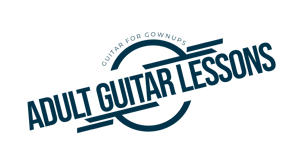Learn the Songs You Love
Quite often, when crossing the threshold from “beginning guitarist” to – “guitar player” – it’s natural to feel the “creative” juices start to flow. You sit down doodling with your guitar, and suddenly a cool chord progression glides off your fingers, a melody begins to surface, you jot down some lyrics on a tattered legal pad, and invariably, a song is born.
Maybe you’ve decided that you’re going to write your own songs, express yourself and your inner feelings, and only play original material. That’s great! It’s a worthy goal, so write on!
In terms of self expression, guitarists (and musicians in general) often fall into one of several different categories:
Original Music “Purists”
I know musicians that are so adamant about exclusively playing their own songs that they wouldn’t get caught dead on stage with a “cover” song in their portfolio.
Cover Song Musicians
I have other friends that play in bands that play nothing but “cover” tunes. They enjoy bringing familiar songs to life for a live crowd, and some get paid well for it.
“A Little Bit of Both” Musicians
Now that I no longer do long distance touring, I write a lot of original songs to pitch to publishers and artists, but also play with various local and regional bands that predominately play cover songs. Most musicians I know fall into this “little bit of both” category.
Although it’s an admirable goal to pursue strictly original material, there are a number of benefits to learning cover songs that should not be neglected.
If we, as humans, are a “sum of our experiences”, then we, as musicians, are a sum of our “musical experiences“. Everything that we have ever played, everything that we have ever heard, all the little bits and pieces, and all the full length scores – are all rolled up together into what makes us each unique as individual musicians.
One could then conclude that, in order to become a better songwriter and broader musician, you should “learn more cover songs”.
Although that theory may be contrary to a songwriting “purist”, it stands to reason that even the staunchest supporter of the “original material only” path had, early in their journey, listened to and emulated artists that inspired them in the past.
And probably without even realizing it, those “cover” songs have at least had a subconscious effect on their own original music.
Expand Your Horizons
Learning cover songs is a great exercise in expanding your musical vocabulary. The things you learn from cover songs have a way of filtering through and becoming part of your own personal style.
The things you learn from cover songs will not only help you as a songwriter, it will also have an impact on your guitar playing.
My early days of learning to play lead guitar were spent hoovering over a turntable while, “stealing licks” from Jimi Hendrix, Santana, Jeff Beck, Robin Trower, Jimmy Page and Clapton. Those early influences still have a big impact on my playing style, even decades later.
There are some neat things that can happen while learning and dissecting cover songs. The experience of finally nailing a difficult lick, the satisfaction of figuring out an inconspicuous chord, the discovery of a new chord progression that you had not considered before – there are many “aha” moments when learning cover songs that would have been missed otherwise.
And all those moments make a conscious, or unconscious, contribution to who you are and what you will become musically.
Often times, new guitar players shy away from attempting to learn cover songs. There is the thought that songs on a recording are somehow beyond their reach, somehow “un-learnable”.
But the truth is that, for a guitarist that has the basics under their belt, many of the songs in popular music that they aspire to learn are actually comprised of chord progressions and patterns that they already know, or are familiar with. Many are surprised to discover that it’s really not all that difficult to learn them.
It is through this discovery process that a new guitar player can begin to truly expand their horizons and begin to progress as musicians by beginning the process of figuring out how to play cover songs.
So regardless of which path you ultimately end up taking, whether it’s the pure original songwriting route, the cover song route, or a combination thereof – keep in mind that spending the time and effort to learn cover songs is a healthy habit to get into and that the effort will pay off in dividends to you musically for as long as you play guitar.



